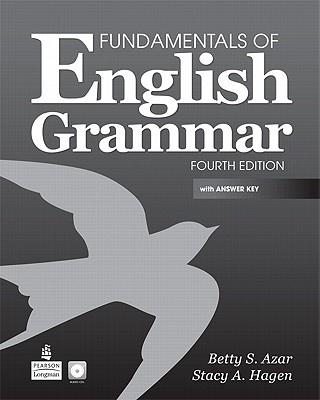


USING GERUNDS AND INFINITIVES
Black Azar Units
Gerunds & Infinitives
Copyright © 2012 by Albert • All Rights reserved • • Designed by AlbertEnglish.com with the exception of some banners and buttons
Grammar
Grammar
Grammar
13
Reasons to Use a GERUND
1. Vč VČ with Vč NOT on the list
2. Following a preposition
3. Verbal SUBJECT sentence
4. Go ACTION
5. Method: by + gerund
6. NEVER alone as a main verb
1. Vč VČ with Vč NOT on the list
2. Following a preposition
3. Verbal SUBJECT sentence
4. Go ACTION
5. Method: by + gerund
6. NEVER alone as a main verb
When should we choose the infinitive or gerund form of a verb?
Whenever there are two verbs next to each other (Vč VČ) that are not together as a tense, i.e. progressive, perfect, or passive, then a decision must be made concerning the form of the second verb. The second verb can either be in the infinitive, to do, or in the gerund form, doing. If the first verb, Vč, is on the list below, then VČ will be written as an infinitive. If Vč is not on the list, then VČ will be written as a gerund. (Note that there are some Vč that allow VČ to be written in either the gerund or infinitive form. Such verbs have been divided into groups. Verbs in the feelings & process groups can take a VČ that is either a gerund or infinitive while the meaning will remain the same. However, Vč that are in the strange group will not have the same meaning.)
When should we choose the infinitive or gerund form of a verb?
Reasons to Use a GERUND
1. Vč VČ when Vč is NOT on the list
2. Following a preposition
3. Verbal SUBJECT sentence
4. Go ACTION (This is just Vč VČ)
5. Method: by + gerund
6. NEVER alone as a main verb
1. Vč VČ when Vč is NOT on the list
2. Following a preposition
3. Verbal SUBJECT sentence
4. Go ACTION (This is just Vč VČ)
5. Method: by + gerund
6. NEVER alone as a main verb
Whenever there are not two verbs next to each other, this would be decided in different ways. If you are writing a verbal subject, use a gerund.
CORRECT: Doing homework can be difficult. INCORRECT: To do homework can be difficult.
A gerund subject sentence can be written as a 'subjectless' sentence using 'it' as a subject.
Doing homework can be difficult. It can be difficult to do homework.
Any time that a verb follows a preposition, the verb must be a gerund.
by doing homework / before doing homework / after doing homework / in doing homework
Additionally, any time a writer is expressing the purpose for doing something, he may use in order to do. It is usually not a problem to drop in order leaving what looks like a lone infinitive.
I must have silence in order to do my homework. (I must have silence to do my homework.)
In order to do my homework, I must have silence. (To do my homework, I must have silence.)
CORRECT: Doing homework can be difficult. INCORRECT: To do homework can be difficult.
A gerund subject sentence can be written as a 'subjectless' sentence using 'it' as a subject.
Doing homework can be difficult. It can be difficult to do homework.
Any time that a verb follows a preposition, the verb must be a gerund.
by doing homework / before doing homework / after doing homework / in doing homework
Additionally, any time a writer is expressing the purpose for doing something, he may use in order to do. It is usually not a problem to drop in order leaving what looks like a lone infinitive.
I must have silence in order to do my homework. (I must have silence to do my homework.)
In order to do my homework, I must have silence. (To do my homework, I must have silence.)
Fundamentals of English
Grammar
Unit 1
Present Time
Unit 2
Past Time
Unit 3
Future Time
Unit 4
Present Perfect & Past Perfect
Unit 5
Asking Questions
Unit 6
Nouns & Pronouns
Unit 11
Count/Noncount Nouns & Articles
Infinitive Subjects
To say no to that is a virtue.
To say no to that is a virtue.
Technical jargon for using -ing after to
-Adam's English Lessons
-Adam's English Lessons
Reasons to Use the INFINITIVE
1. Vč VČ when Vč is on the list
2. in order to + verb
3. It SUBJECT sentence (subjectless)
4. (teach/learn/know) how to
5. would like / would love to + verb
6. NEVER as a subject
1. Vč VČ when Vč is on the list
2. in order to + verb
3. It SUBJECT sentence (subjectless)
4. (teach/learn/know) how to
5. would like / would love to + verb
6. NEVER as a subject
Reasons to Use the INFINITIVE
1. Vč VČ when Vč is on the list
2. in order to + verb
3. It SUBJECT sentence (subjectless)
4. (teach/learn/know) how to
5. would like / would love to + verb
6. NEVER as a subject
1. Vč VČ when Vč is on the list
2. in order to + verb
3. It SUBJECT sentence (subjectless)
4. (teach/learn/know) how to
5. would like / would love to + verb
6. NEVER as a subject
Students:
What is your motivation for wanting to start a sentence with an infinitive subject?
If it is because you use infinitive subjects in your native language, then you are translating. Stop translating... and don't use inifinitive subjects.
What is your motivation for wanting to start a sentence with an infinitive subject?
If it is because you use infinitive subjects in your native language, then you are translating. Stop translating... and don't use inifinitive subjects.














